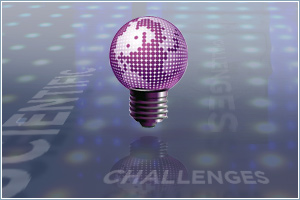
The Internet is 27 years old, give or take a few years and depending on whom you’re asking. But while the Web has changed a lot in our lives the last couple decades, by historical standards the science of the Internet is still relatively young.
Let me explain: it’s cliché to compare the Internet to Gutenberg’s invention of the printing press, but we forget that it took more than 200 years after the invention of the printing press until we experienced the rise of the novel as a popular art form. In other words, the Web we have now is not the Web we’ll have in the future. There’s a tremendous amount of innovation to come.
The question is: “What kind of innovation can we expect?”
At Yahoo Labs, we believe that innovation in the Web experience of tomorrow will depend directly on the work being done behind the scenes today to create new scientific theories, models and disciplines for understanding the Internet. In fact, a core element of Yahoo Labs’ charter is to invent the new sciences that will underlie the next generation Internet, from Green Computing, Privacy and Security, to Economics and Social Systems, Advertising, Web Information Management, and Machine Learning. And nowhere is that charter more evident than in our Key Scientific Challenges Program, which focuses on supporting the bright young minds at universities across the world who are thinking, researching and creating those new sciences.
Today we’re happy to announce that we have selected 23 students from 16 world-class universities as our 2010 Key Scientific Challenges winners. They were selected based on their research proposals into the 12 different scientific challenges we believe are critical to fueling innovation on the Web. Our outstanding 2010 winners are:
Computational Advertising Yuanhua Lv, University of Illinois, Urbana-ChampaignEach of these students submitted to Yahoo an idea and a research proposal that our scientists and leaders saw as a genuine contribution to their field and to an area we see as critical to laying a scientific foundation for future Web experiences. Over the next several months each of them will be able to learn from one of Yahoo’s leading scientists in their specialized field, helping them take their research to the next level and learn what it’s like to crunch data, tackle technical hurdles and design experiments at true Internet scale, an opportunity rare in purely academic environments.
The 2010 winners, in addition to receiving $5,000 in unrestricted seed funding, will convene at Yahoo headquarters in Sunnyvale, California in September for the exclusive Key Scientific Challenges Graduate Student Summit where they will spend two days with Yahoo Labs scientists presenting and discussing their work.
Congratulations and good luck to our Key Scientific Challenge winners for 2010.
-Jamie Lockwood
Academic Relations
Yahoo Labs
More information at: